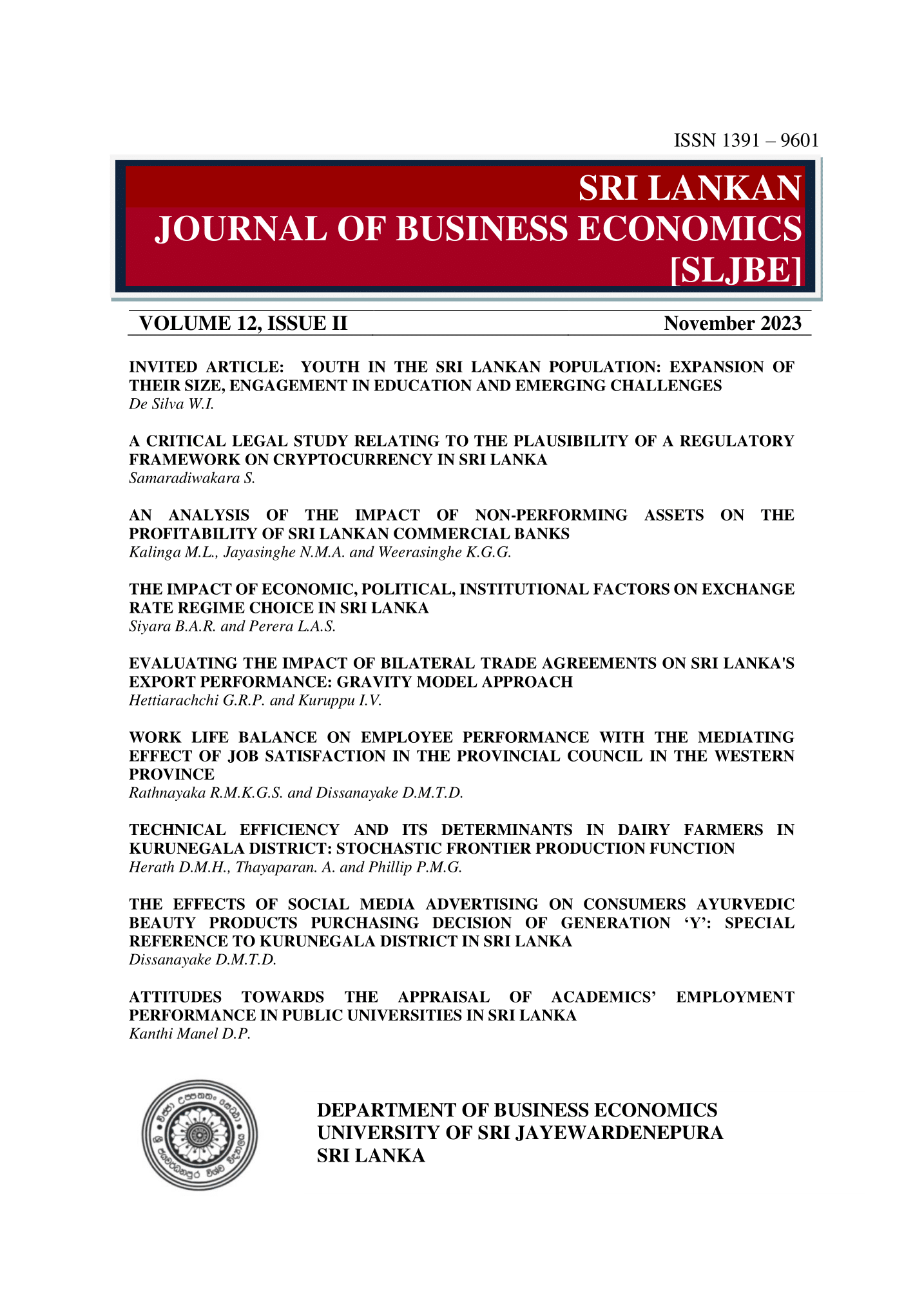WORK-LIFE BALANCE ON EMPLOYEE PERFORMANCE WITH THE MEDIATING EFFECT OF JOB SATISFACTION IN THE PROVINCIAL COUNCIL IN THE WESTERN PROVINCE
DOI:
https://doi.org/10.31357/sljbe.v12.6796Abstract
In the contemporary and dynamic landscape of modern employees, the problem of work-life balance has emerged as a prominent and multifaceted challenge confronted by employees across the globe. The research endeavored to explore the nexus between work-life balance and employee performance, with a particular focus on the mediating role of job satisfaction, within the context of the provincial council employees in the western province of Sri Lanka. The construct of work-life balance, as investigated in this study, encompasses several key factors, namely personality, emotional intelligence, and job-related stress. The research centered on Management Service Officers within the provincial council of the western province, and it employed a convenience sampling method to select a sample size of 320 respondents. Data collection was facilitated through the administration of structured questionnaires. Job satisfaction was discovered to be a mediator in this study and statistical analyses such as Pearson Correlation, Regression, and Sobel test were used. There is a direct relationship that can be statistically significant between work-life balance factors and employee performance. Also, job satisfaction had mediation and a significant relationship with emotional intelligence and employee performance. However, personality on job satisfaction and job-related stress on job satisfaction were not statistically significant. Based on the research, it was found that there was an impact on work-life balance and job satisfaction as a mediator. Furthermore, the findings of this study would be used as a guideline for employees in the provincial council to identify their problems and the ways to resolve those problems referential material for their studies of future researchers.

